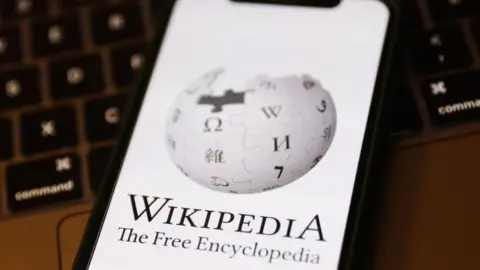In a recent legal development that has captured the attention of the media and public alike, Wikipedia has faced a significant setback in its challenge against new regulations introduced under the Online Safety Act. The Wikimedia Foundation, the non-profit organization that supports the widely-used online encyclopedia, sought a judicial review of these rules, which they argue could jeopardize the human rights and safety of volunteer editors who contribute to the platform. The core issue revolves around the act’s stipulations requiring the verification of user identities, a requirement that could fundamentally alter how the platform operates.
The case was decided by the High Court, where the Wikimedia Foundation contended that the new regulations could place an undue burden on its operations. They argued that the identity verification protocols mandated under the act would effectively undermine the anonymity and safety of its editorial contributors. Despite the judgment not favoring the Wikimedia Foundation, the court’s ruling acknowledged the need for Ofcom, the UK’s communications regulator, as well as the government, to ensure Wikipedia’s operational integrity remains intact amidst these new provisions.
Following the court’s decision, a spokesperson for the UK government expressed their approval, stating that the judgment would facilitate further advancements in implementing the Online Safety Act, aimed at fostering a safer online environment for users. This act has been designed to impose stricter guidelines on online platforms, particularly social media sites, by classifying certain services as “Category 1,” which entails the most rigorous compliance obligations.
Judicial reviews serve to examine whether public bodies, such as governmental agencies, have acted lawfully in their decision-making processes. In this instance, the Wikimedia Foundation and a Wikipedia editor endeavored to challenge the logic behind the government’s classification of various online platforms under the new safety framework. They argued that the rules were overly broad and potentially flawed, as they targeted a platform like Wikipedia, which operates on entirely different principles than major social media networks. Their central concern is that these regulations, originally aimed at larger firms, inadvertently extend to Wikipedia, imposing responsibilities that could severely hinder its functionality.
If Wikipedia were to be designated as a Category 1 service, it would necessitate compliance with extensive new duties, such as verifying the identities of all contributors—an action that poses serious implications for user privacy and anonymity. Furthermore, the foundation highlighted that one way to evade the Category 1 classification would involve significantly reducing UK accessibility to the encyclopedia or disabling vital site features, both of which the organization believes would counteract the mission of open knowledge sharing.
The government’s legal representation claimed that the ministers had explored the possibility of exempting Wikipedia from these regulations but ultimately concluded that such an exemption was not warranted. This argument was a focal point in the court’s consideration, leading to a ruling that ultimately sided with the government’s stance.
Nevertheless, although the court dismissed Wikimedia’s appeal, legal representatives such as Phil Bradley-Schmieg, lead counsel at the Wikimedia Foundation, felt that the judgment did not provide an unrestricted endorsement for implementing a regulatory regime that could severely disrupt Wikipedia’s operational capabilities. They noted that the court had left the door ajar for future legal challenges should contentions arise regarding the applicability of these rules to Wikipedia.
Experts believe that the ruling opens an interesting dialogue regarding the nature of user-generated content platforms in the age of enhanced online safety measures. Mona Schroedel, a specialist in data protection litigation, emphasized the unique position of Wikipedia, which stands apart from traditional user-to-user platforms due to its specific outreach and operational ethos. Consequently, there remains potential for further legal disputes if the consequences of classifying Wikipedia as a Category 1 service threaten its continued viability.
In conclusion, the implications of this legal battle extend beyond Wikipedia itself, reflecting broader societal conversations about the balance between regulatory measures aimed at protecting users and preserving the rights and freedoms of online platforms that rely on user-generated content. The policies under the Online Safety Act, while well-intentioned, must consider the diverse functionalities of different online services to prevent undermining valuable resources like Wikipedia.










